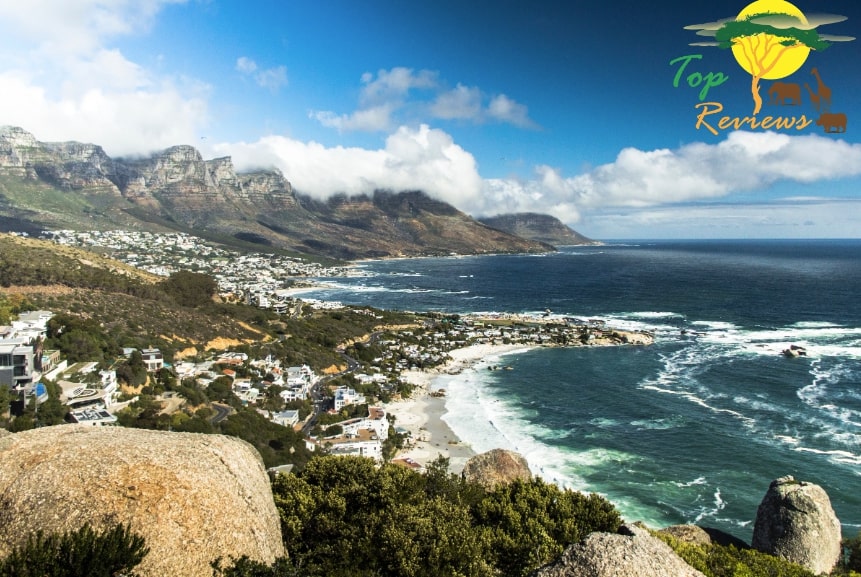Categories > Guides and Tips

Rediscovering the Meaning Behind Cape Town’s Moniker, the “Mother City”
- Why is Cape Town called the Mother City?
- Where did Cape Town’s nickname come from?
- What is Cape Town’s significance a`s the Mother City?
- Cape Town and the British Empire
- Cape Town’s Role in the Development of South Africa
- Cape Town and South Africa’s History
- Cape Town’s Cultural Significance
- Cape Town’s Natural Beauty
- Aside from the “Mother City”, what are other nicknames for Cape Town?
Cape Town is another important city in South Africa when it comes to history, business, culture, and of course, natural beauty. It’s a coastal city located in the Western Cape province of the country that’s become one of its major tourist hubs.
If you’ve ever chatted with locals or done a bit of research, you’ve likely heard the endearing nickname for Cape Town: the Mother City. But have you ever wondered how this beloved moniker came to be?
Why is Cape Town called the Mother City?

Cape Town is nicknamed the Mother City because it’s believed to be the first and oldest city in the country, and thus the “mother” of modern South Africa.
In addition, Cape Town is also seen as the first European city established in South Africa, making it the “mother” of all European settlements in the country.
Where did Cape Town’s nickname come from?

The origin of Cape Town’s nickname, “Mother City”, is uncertain, but it’s believed to be rooted in the city’s historical and cultural significance as the oldest and most important city in the country.
Many natives believe that the moniker was coined by a local journalist named S.E.K. Mqhayi in his book “Abantu Abamnyama” or The Black People in 1927.
Mqhayi used the term to refer to Cape Town as the first city in South Africa, and by extension, the “mother” of all South African cities.
Another prominent origin story for the nickname is that Cape Town was seen as the first European city established in South Africa, making it the “mother” of all European settlements in the country.
This interpretation is supported by the fact that Cape Town was founded by the Dutch East India Company in 1652 and was the first permanent European settlement in South Africa.
What is Cape Town’s significance a`s the Mother City?

The significance of Cape Town as the “Mother City” stems from its rich history, cultural variety, and natural beauty, all of which continue to make it an integral part of South African life and culture.
1. Cape Town and the British Empire

As Cape Town was founded by the Dutch East India Company as the first permanent European settlement in South Africa, it served as the administrative centre of the Dutch Cape Colony until the British occupation in 1795.
This pivotal moment in Cape Town’s history marked the beginning of a long and complex relationship between the city and the British Empire.
2. Cape Town’s Role in the Development of South Africa

Cape Town was a hub for trade, culture, and politics, and the site of numerous historical events. One of the most significant was the signing of the Treaty of Cape Town in 1806, which ended the first British-Dutch war in South Africa.
This event solidified Cape Town’s importance as a political and economic centre in the region.
Calling Cape Town the Mother City implies that the city gave birth to civilisation.
3. Cape Town and South Africa’s History
Cape Town was also an important centre of resistance against the apartheid, with many activists and leaders based in the city. Among them was Nelson Mandela, who was imprisoned on Robben Island off the coast of Cape Town for 18 years.
This period of Mandela’s life became a symbol of the fight against apartheid, and his eventual release marked a turning point in South African history.
4. Cape Town’s Cultural Significance

Cape Town is an incredible city that truly showcases South Africa’s rich cultural heritage. The city is also home to a diverse array of cultures, with influences from indigenous African, Dutch, British, and Asian populations.
You’ll find stunning architecture, fascinating museums, and landmarks that offer a glimpse into the city’s storied past.
The Castle of Good Hope, for example, is one of the oldest structures in the country, while the Bo-Kaap area is renowned for its vibrant and colourful buildings and deep Muslim roots.
Altogether, these unique sites make Cape Town a cultural destination like no other.
5. Cape Town’s Natural Beauty

Cape Town is blessed with stunning landscapes, including the majestic Table Mountain, which has been recognised as one of the new 7 Wonders of Nature. As a major tourist attraction, it’s an iconic symbol of the city’s status as the “Mother City.”

Cape Point is another renowned nature reserve in the city. It boasts dramatic cliffs, beaches, and panoramic views of the Atlantic Ocean and is home to over 250 species of birds, as well as a variety of wildlife such as baboons, ostriches, and antelopes.

You also might have heard about the stunning Kirstenbosch National Botanical Garden, cited as one of the most beautiful botanical gardens in the world. It features over 7,000 plant species, many of which are unique to South Africa.
Aside from the “Mother City”, what are other nicknames for Cape Town?
Aside from the “Mother City,” Cape Town is also referred to as the Tavern of the Seas, Cape of Storms, and Fairest Cape.
- The Tavern of the Seas – This moniker relates to Cape Town’s long history as a prominent harbour for sailors and traders, which dates back to the 16th century.
- The Cape of Storms – This nickname was given to Cape Town by Portuguese explorer Bartolomeu Dias due to the rough seas and storms he encountered when he sailed around the Cape of Good Hope in 1488.
- The Fairest Cape – This nickname is a nod to the city’s natural beauty, particularly its stunning coastal and mountain landscapes. The nickname was coined by Sir Francis Drake in 1580 and has been used by many since then.






